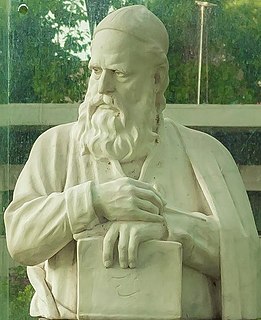A Quote by Ralph Waldo Emerson
Cities of mortals woe-begone Fantastic care derides, But in the serious landscape lone Stern benefit abides.
Related Quotes
While the focus in the landscape of Old World cities was commonly government structures, churches, or the residences of rulers, the landscape and the skyline of American cities have boasted their hotels, department stores, office buildings, apartments, and skyscrapers. In this grandeur, Americans have expressed their Booster Pride, their hopes for visitors and new settlers, and customers, for thriving commerce and industry.
Woe to him whom this world charms from Gospel duty. Woe to him who seeks to pour oil upon the waters when God has brewed them into a gale. Woe to him who seeks to please rather than to appal. Woe to him whose good name is more to him than goodness. Woe to him who, in this world, courts not dishonor! Woe to him who would not be true, even though to be false were salvation. Yea, woe to him who, as the great Pilot Paul has it, while preaching to others is himself a castaway.
Song in the Manner of Housman" O woe, woe, People are born and die, We also shall be dead pretty soon Therefore let us act as if we were dead already. The bird sits on the hawthorn tree But he dies also, presently. Some lads get hung, and some get shot. Woeful is this human lot. Woe! woe, etcetera.... London is a woeful place, Shropshire is much pleasanter. Then let us smile a little space Upon fond nature's morbid grace. Oh, Woe, woe, woe, etcetera.
Being disconnected from the local church, for whatever reason, is a dangerous way to live. Not only do these “ lone rangers” miss out on the blessings of functioning within the context of the body of Christ, but like lone sheep away from the safety of the flock and the watchful care of the shepherd, they are vulnerable to predators of every sort.
As industries migrate toward the Far East, the future of many Western cities will no longer lie in manufacturing products but ideas and patents. Young, mobile elites can choose where they want to live, and they can easily move, which means that cities are involved in a heated competition for the best people. Only the most attractive cities can benefit from this development.










































